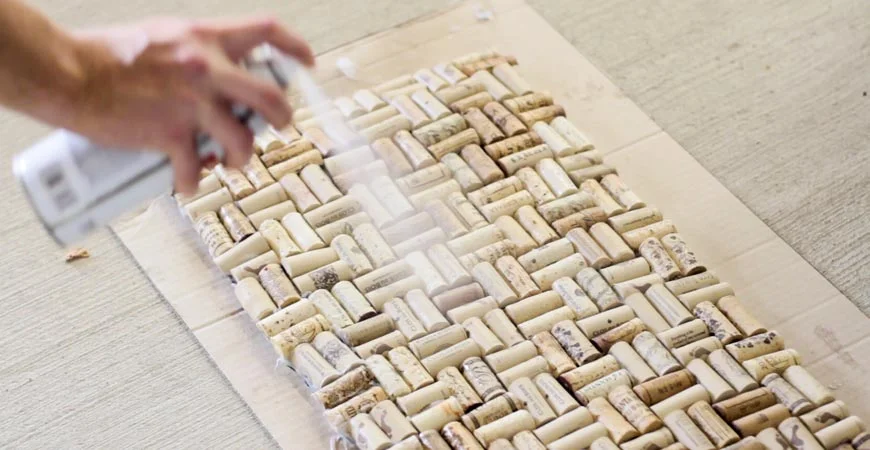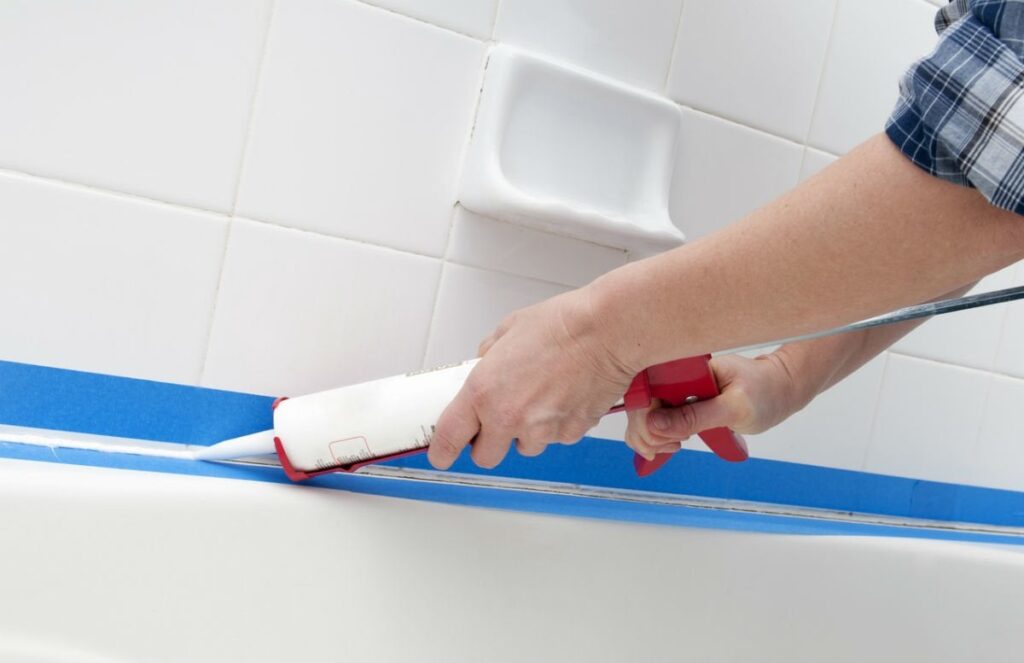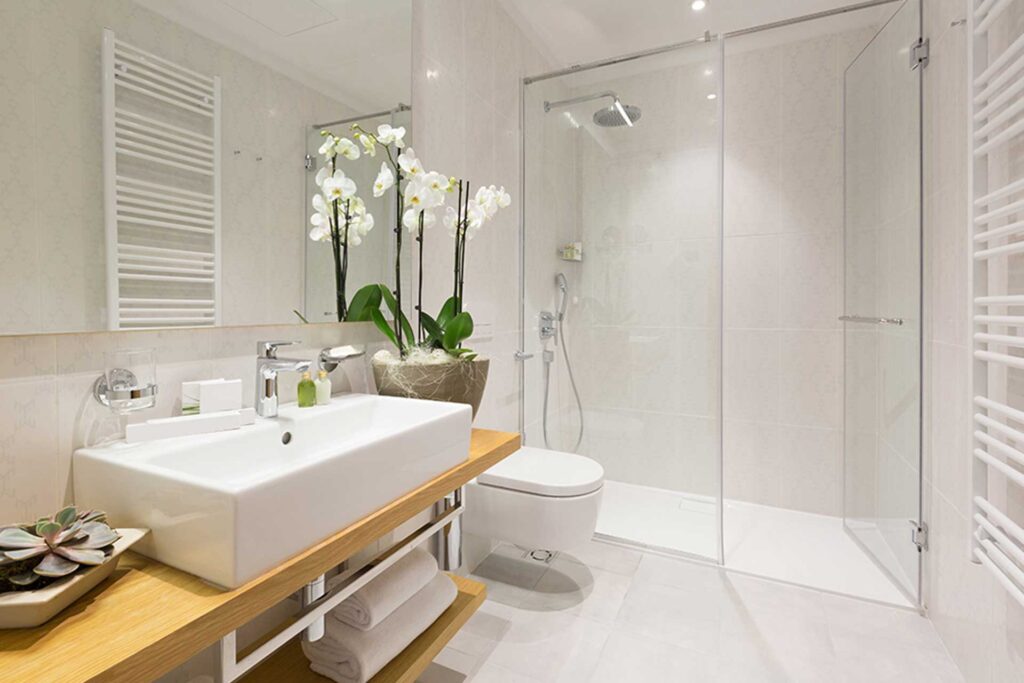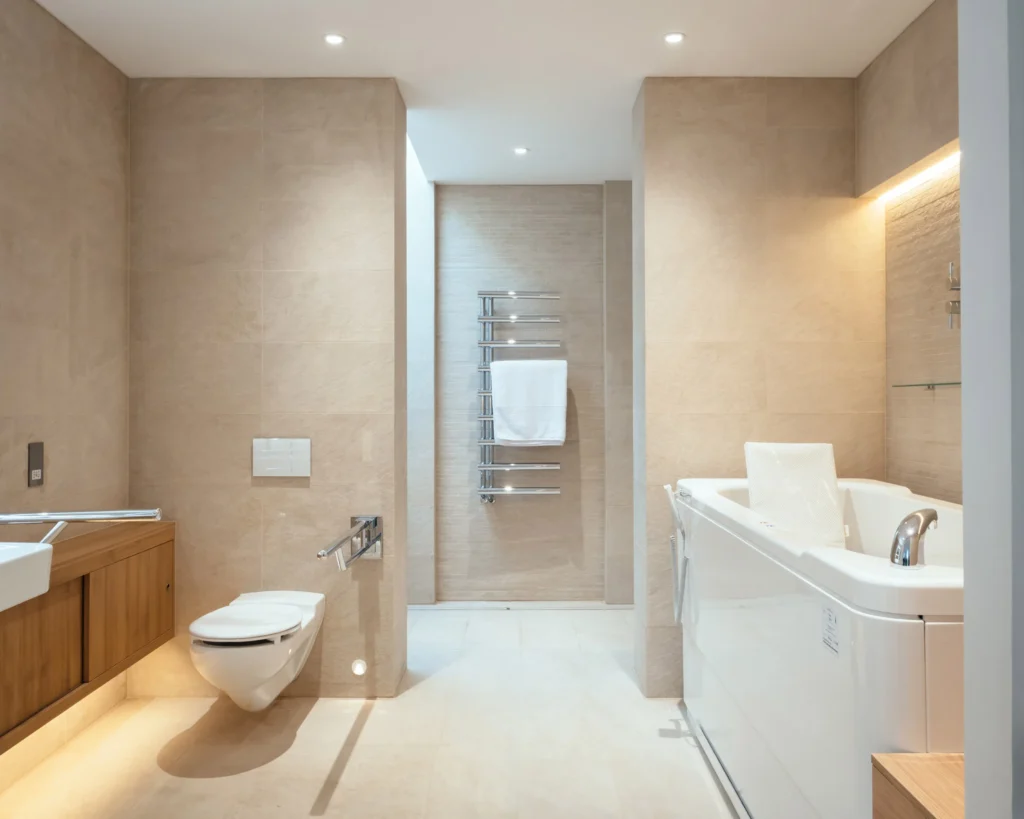
Introduction
Cork bath mats are becoming an increasingly popular choice for bathrooms due to their natural beauty, eco-friendly appeal, and durability. These mats are a unique alternative to traditional bath mats made from materials like cotton, rubber, or plastic. They offer a refreshing, sustainable option that not only complements a variety of bathroom designs but also provides practical benefits. However, when considering a cork bath mat, it’s important to evaluate its pros and cons, as well as understand how it compares to other materials available in the market. In this comprehensive guide, we will dive deep into everything you need to know about cork bath mats, from their functionality and hygienic properties to their longevity and aesthetic appeal. Let’s explore why cork mats are gaining popularity and whether they are the right choice for your bathroom.
Are Cork Bath Mats Good?
Cork bath mats are not only aesthetically pleasing but also highly functional. They are naturally water-resistant, lightweight, and offer a cushioned surface for your feet. Unlike other bath mats that may trap moisture and develop mold or mildew over time, cork mats resist the buildup of these issues due to their inherent properties. The natural structure of cork ensures that water is absorbed quickly, and the surface dries relatively fast, making it a hygienic and practical choice for bathrooms.
Another reason cork mats are considered good for bathrooms is that they are durable and can last for several years with proper care. They don’t easily wear out, unlike fabric mats that tend to fray or lose their softness over time. Additionally, cork mats are an eco-friendly choice since cork is a renewable resource, harvested from the bark of cork oak trees, without causing harm to the tree.
However, like any material, cork mats have their downsides, which we will explore in greater detail later. Overall, cork bath mats offer a balance of aesthetics, practicality, and sustainability, making them a great option for those looking to elevate their bathroom experience.
What Type of Mat is Best for a Bathroom?
When choosing a bath mat for your bathroom, several factors need to be considered, such as absorbency, durability, and comfort. The ideal mat should be able to absorb water quickly to prevent slips and falls and dry rapidly to avoid creating a damp environment that promotes the growth of bacteria and mold.
Cotton bath mats are a classic choice for their softness and absorbency, while rubber mats are often favored for their non-slip properties. Memory foam mats, on the other hand, are known for their plush comfort, making them ideal for those who spend a lot of time standing in front of the mirror.
Cork bath mats, however, stand out because they combine the best of several worlds. They are water-resistant, naturally anti-microbial, and offer a comfortable, firm surface for your feet. Their lightweight design and non-slip backing make them a safe choice for wet bathroom floors.
Ultimately, the best mat for your bathroom depends on your personal preferences and needs. If you’re seeking a sustainable, long-lasting option, a cork bath mat could be your top choice. However, if you prefer a plush, super-absorbent mat, cotton or memory foam might be more suitable.
What Are the Disadvantages of Cork Yoga Mats?
While cork mats are highly praised for their eco-friendly benefits, they are not without their drawbacks. One of the major disadvantages of cork yoga mats, and cork mats in general, is that they can be somewhat less cushioned than other mats, such as foam or rubber alternatives. While cork provides a firm surface, it may not offer the level of comfort some users prefer during long yoga sessions or prolonged standing.
Another drawback is that cork mats are prone to damage if exposed to excessive moisture or left in damp environments for extended periods. Over time, the cork material can degrade if it is not properly maintained. This is especially true for mats with lower-quality cork or if they are not sealed or treated to prevent water damage.
Moreover, cork yoga mats tend to be heavier than their foam or rubber counterparts, which could be a concern for those who require portability in their yoga practice. Despite these disadvantages, many users still prefer cork mats for their sustainability and non-toxic properties.
Does a Cork Mat Absorb Water?
Yes, cork mats do absorb water, but they do so at a slower rate compared to materials like cotton or microfiber. Cork is naturally water-resistant, meaning it won’t soak up large amounts of water immediately, but it does allow water to settle on the surface temporarily. The water on a cork mat will eventually evaporate due to the mat’s breathable structure.

One of the key benefits of cork is its ability to resist the growth of bacteria and mold, which can develop when water is trapped in more absorbent materials. Since cork does not retain moisture for long, it remains a hygienic option for bathrooms, where water is constantly splashed and spilled.
It’s important to note, however, that excessive exposure to water over long periods can lead to the deterioration of cork. It’s recommended to allow the mat to dry thoroughly between uses and avoid leaving it in excessively damp environments.
Do Cork Mats Smell?
Cork mats are generally odor-resistant due to the natural properties of cork. Cork has a unique structure that resists moisture retention and the growth of bacteria, both of which can cause unpleasant odors. As a result, cork mats tend to remain fresher for longer compared to fabric mats, which can absorb moisture and develop a musty smell over time.
However, if a cork mat is left in a consistently damp environment without proper ventilation, it may eventually start to develop a smell. This is usually a sign of excessive moisture exposure or the mat not being allowed to dry properly after use. To prevent this, it’s crucial to keep the cork mat in a dry, well-ventilated area and allow it to air out regularly.
What Type of Bath Mat is Most Hygienic?
When it comes to hygiene, cork mats have a clear advantage over traditional fabric mats. Cork is naturally resistant to the buildup of bacteria, mold, and mildew, which are common problems with other materials like cotton or microfiber. The quick-drying properties of cork also help prevent moisture from lingering on the mat’s surface, further reducing the chances of bacterial growth.
That being said, some other materials are also considered hygienic for bath mats. Rubber mats with antibacterial coatings are a good choice for hygiene-conscious individuals, as they are resistant to mold and bacteria. Additionally, synthetic mats with quick-dry technology are designed to be low-maintenance and resistant to germs.
Ultimately, cork bath mats rank high on the list of hygienic options due to their natural antimicrobial properties and water-resistant nature.
What Can I Use Instead of a Bath Mat?
If you’re looking for alternatives to traditional bath mats, there are several options available. A bamboo mat is an eco-friendly alternative to cork, offering a similar aesthetic and water-resistant properties. Bamboo is also durable and resistant to mold and mildew growth, making it a good choice for bathrooms.
Stone or pebble mats can add a unique touch to your bathroom while providing a natural surface for your feet. These mats are durable, non-slip, and can help massage your feet as you step out of the shower.
For a more minimalistic approach, you could also consider towel rugs or microfiber mats, which are soft, quick-drying, and easy to clean. Each of these alternatives offers different benefits, depending on your bathroom’s design and your personal preferences.
Which Shower Mat is Best?
The best shower mat is one that offers excellent water resistance, slip resistance, and ease of maintenance. Cork shower mats are ideal because they are naturally water-resistant and dry quickly, helping to prevent mold and mildew growth. Rubber mats, on the other hand, are often favored for their non-slip properties, making them a safe choice for wet, slippery areas.
Other popular options include microfiber mats, which are highly absorbent and fast-drying, and bamboo mats, which are durable and eco-friendly. Ultimately, the best shower mat will depend on your specific needs, but cork mats are certainly among the top contenders.
Which Color Mat is Good for the Bathroom?
The color of your bath mat can significantly impact the overall look and feel of your bathroom. Neutral colors like beige, white, or gray are timeless and versatile, complementing most bathroom styles. These colors tend to create a calm and serene atmosphere, ideal for bathrooms designed for relaxation.
For a more modern or contemporary look, you can opt for bold colors like navy blue, emerald green, or deep burgundy. These hues add personality and make a statement, especially when paired with simple, minimalist décor.
Ultimately, the color you choose for your bath mat should align with the aesthetic of your bathroom and your personal preferences. Cork mats, with their natural brown tones, can easily blend into various bathroom designs, offering an earthy and organic vibe.
What is the Best Material for a Shower Mat?
When choosing a shower mat, the material plays a crucial role in its functionality. Cork is one of the best materials for shower mats because it is water-resistant, durable, and naturally antimicrobial. It offers a firm surface while allowing for easy drainage, ensuring a dry and hygienic environment.
Rubber is another excellent choice for shower mats, especially for its non-slip properties. However, it may not dry as quickly as cork and can accumulate mildew over time if not properly cared for.
Other popular materials for shower mats include bamboo, microfiber, and memory foam. Each has its own unique advantages, but cork remains one of the most practical and eco-friendly options for those looking to enhance their bathroom’s functionality and hygiene.
Is Cork or Rubber Better?
When comparing cork and rubber bath mats, both materials have distinct advantages. Cork is more eco-friendly, sustainable, and resistant to mold and bacteria growth. It also dries more quickly than rubber, making it a great option for bathrooms where moisture is a constant concern.
On the other hand, rubber mats are known for their non-slip properties, making them ideal for ensuring safety in wet, slippery areas. However, rubber may not be as breathable as cork, and it can sometimes trap moisture, leading to unpleasant odors or mold growth.
Ultimately, the choice between cork and rubber depends on your priorities. If sustainability, quick-drying properties, and hygiene are important to you, cork is likely the better option. If slip resistance is your primary concern, rubber may be more suitable.
How Long Do Cork Mats Last?
Cork mats are highly durable and can last for several years with proper care. The lifespan of a cork mat largely depends on its quality, how often it is used, and how well it is maintained. On average, a cork mat can last anywhere from 2 to 5 years.
To extend the life of your cork mat, make sure to keep it dry between uses and avoid exposing it to excessive moisture. Regularly cleaning the mat with a gentle cleaner and wiping it down with a dry cloth can help maintain its appearance and functionality.
What Are the Pros and Cons of Cork Tiles?
Cork tiles are an excellent flooring choice for many applications, including in bathrooms. The pros of cork tiles include their natural beauty, eco-friendliness, and ability to provide a cushioned surface. They are also highly durable and resistant to mold and mildew, making them ideal for damp environments like bathrooms.
However, cork tiles also have some downsides. They can be more expensive than other flooring options, and excessive moisture exposure can cause them to warp or degrade over time. Additionally, cork tiles may require regular sealing to maintain their water-resistant properties.
Overall, cork tiles offer a unique, sustainable, and functional option for bathroom flooring, though they may not be suitable for every budget or bathroom style.
Conclusion
Cork bath mats are a fantastic addition to any bathroom, offering a perfect balance of functionality, aesthetics, and sustainability. With their water-resistant properties, natural antimicrobial benefits, and eco-friendly appeal, cork mats are an excellent choice for those looking to enhance their bathroom’s look and feel. While they may not be as cushioned as memory foam or as slip-resistant as rubber, cork mats excel in durability and hygiene, making them a smart investment for any modern bathroom. When choosing the best mat for your bathroom, consider your personal preferences and needs, and don’t hesitate to opt for cork if you’re seeking an eco-conscious and practical solution.




